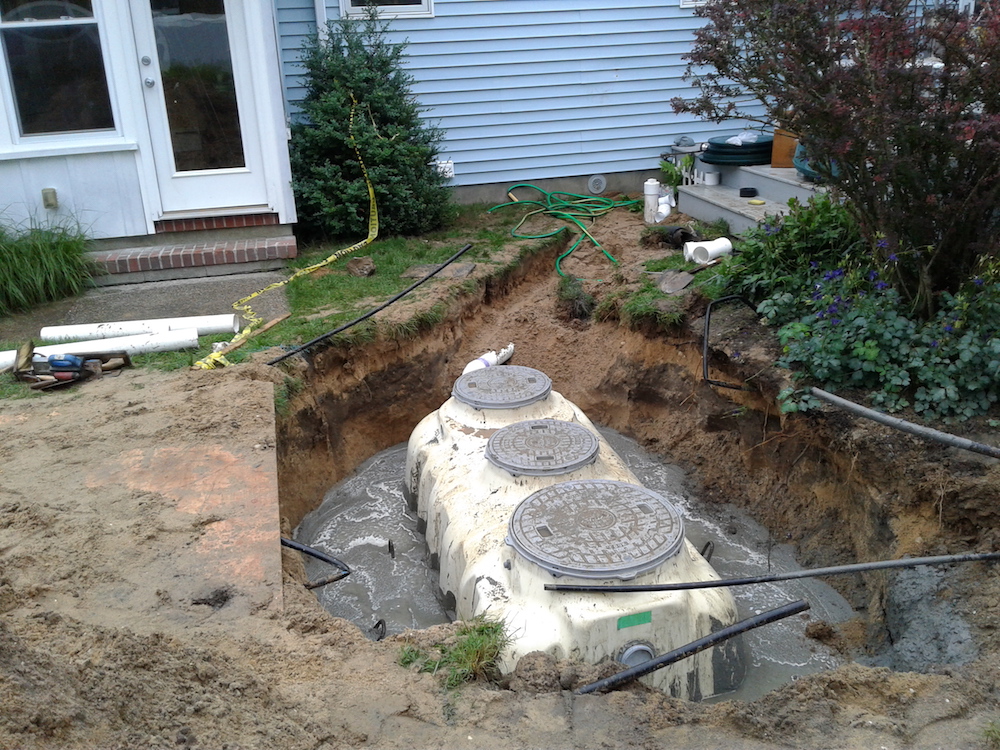Small septic tanks, also known as alternative or innovative septic tanks, have become a popular solution in water management for homeowners who live on difficult terrains or with the space to do so. These systems are designed to maximize the space available, can accommodate various soil conditions, and guarantee efficient waste treatment while protecting groundwater. Let’s examine the systems in more detail as well as their advantages and sophisticated technology they utilize.

Small Septic Systems Are Essential
Installation of conventional septic tanks, which require a significant amount of land, can be difficult for homeowners living on smaller areas. In this case, a small septic tank might not be enough to handle household waste. Septic systems that are compact and efficient are specifically designed to meet these needs by offering advanced, space-efficient solutions tailored to fit smaller spaces and special environmental conditions.
Alternative Septic Systems For Small Lots
Compact design: Small Septic systems’ compact dimensions allow for installation in small spaces. It’s particularly useful for homeowners with small properties because they don’t require large areas of land for a conventional septic systems.
Advanced Waste Treatment Alternatives septic utilizes cutting-edge techniques to guarantee the highest quality treatment of waste. For example, aerobic treatment units (ATUs) introduce oxygen into the treatment process encouraging the growth of aerobic bacteria which decompose organic matter more efficiently than anaerobic bacteria used in conventional systems.
Environmental Protection The systems are designed to protect the environment through prevention of groundwater contamination. Drain fields and sophisticated treatment methods ensure that water is treated and purified before being released into the natural environment.
Adaptability to Different Soil Conditions Flexible to Different Soil Conditions: Alternative Septic Systems are versatile and can be customized to perform efficiently with a variety of soil conditions. They are suited to different geographical zones and environmental conditions because they are adaptable to different conditions. For more information, click Alternative septic systems for small lots
Alternative Septic Systems For Small Lots
Aerobic Treatment Units (ATUs): ATUs make use of oxygen to improve the breakdown of organic material in the water. Compact dimensions and a superior capability for treatment make these units ideal for small-sized areas. They are especially efficient in areas that have stringent environmental regulations because they produce higher-quality effluent as compared to traditional systems.
Sand Filters: Sand filters employ layers of sand that filter and treat wastewater in a natural way. They are an excellent option for areas that have soil that isn’t appropriate for drainage fields. Sand layers serve as a natural filtration mechanism, removing contaminants and pathogens from the wastewater before it can be released.
Pressure-Dosed Drainfields dosed systems, water is pumped periodically into the drain fields to ensure a uniform dispersion and absorbency. This method is extremely efficient for small areas, since it prevents soil saturation and boosts the overall efficacy of the process.
Constructed Wetlands Constructed wetlands resemble natural processes of wetlands to treat water pollution. These wetlands consist of layers of soil and vegetation that purify and filter the effluent. They are designed to be eco friendly, and they can be modified to smaller areas. This provides both practical and aesthetic benefits.
Mound Systems are elevated drainfields which are constructed over the natural surface of soil. They are particularly beneficial in areas in which the groundwater table is elevated or the bedrock is low. The natural filtration capabilities of sand layers and soil within mound systems allows for efficient treatment.
Implementing Alternative Septic Systems
It is vital to consult a professional before deciding on the possibility of a different system for a smaller size lot. A professional can assess the needs of the property and recommend the best solution. To decide which system is the best one, you need to consider factors such as the type of soil, the dimensions of the lot as well as local regulations and environmental conditions.
Conclusion
Small-lot septic systems can provide innovative, sustainable solutions to water management. Through the use of advanced treatment technology and adapting to different soil conditions, these systems provide homeowners with efficient and environmentally green options for tackling household waste. These systems, ideal for any terrain or size, guarantee that the waste is properly treated while protecting the environment as they do the property. Small septic systems are the future in wastewater management. They offer functionality as well as efficiency, and are sustainable.

